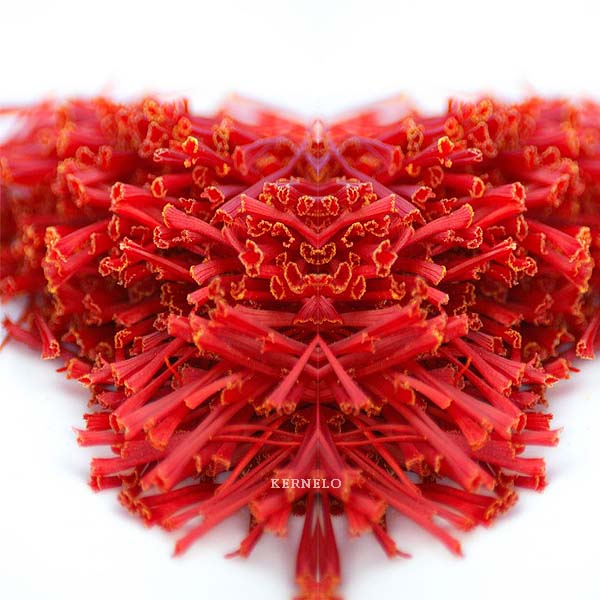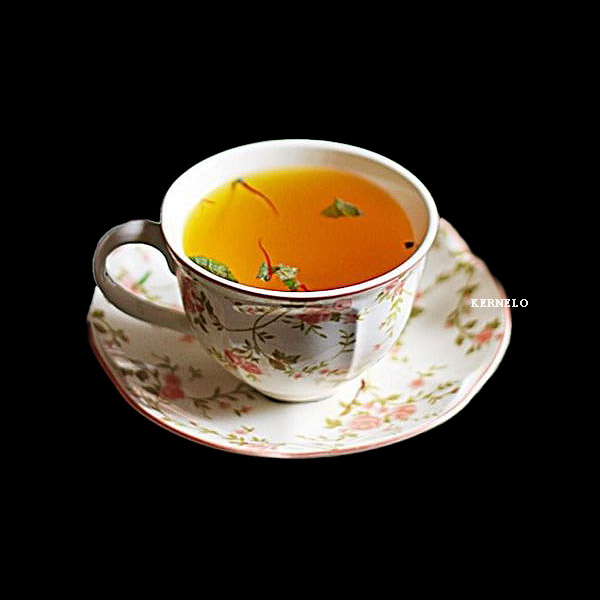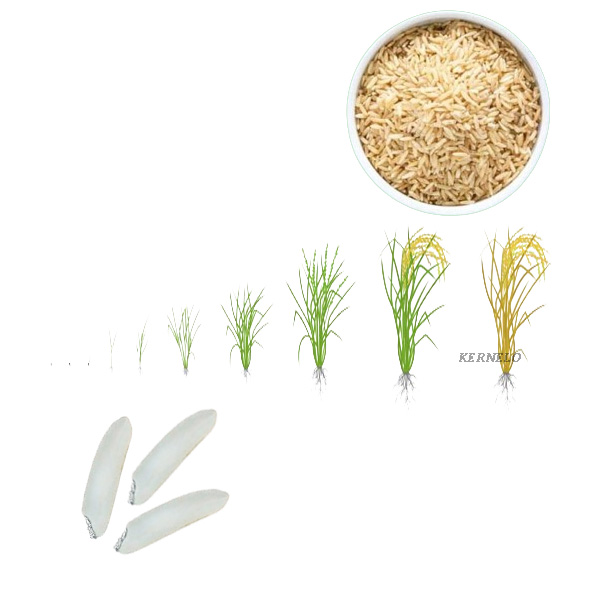Benefits of Saffron

Canadian Pulses
May 21, 2024Saffron is medicine?
The spice saffron, sometimes known as “red gold,” is made from the Crocus sativus flower. Saffron, valued for ages as a culinary and medicinal element alike, is recognized for its vivid color and distinct flavor. These are a few of the many applications and health advantages of saffron. Numerous antioxidants, such as kaempferol, safranal, crocin, and crocetin, are found in saffron. By assisting the body in combating damaging free radicals, these substances shield cells from oxidative stress and lower the chance of developing chronic illnesses.
There’s increasing scientific evidence that saffron can improve mood and reduce anxiety and depression symptoms. It seems to be a viable natural treatment for mood disorders because of its capacity to regulate neurotransmitters, lower inflammation, and guard against oxidative stress. Saffron may become a more well-known and popular choice for people looking for all-natural ways to enhance their mental health as study on the subject progresses.

Enhancement of Mood
The colorful spice saffron, which is extracted from the Crocus sativus flower, has drawn interest due to its possible ability to elevate mood. Empirical research indicates that saffron has the potential to significantly elevate mood and mitigate symptoms of anxiety and despair.
Studies have demonstrated the antidepressant effects of saffron. Similar to other traditional antidepressant drugs, saffron extract has been shown in several tests to considerably reduce depressive symptoms. It is thought that the substances safranal and crocin affect neurotransmitter function in the brain, elevating mood and reducing anxiety.
Important Elements and Mechanisms:
1)Active Ingredients
A number of bioactive substances, principally Safranal, crocin, and crocetin, are found in saffron. These substances are essential to their effects on elevating mood:
The carotenoids crocin and crocetin: which give saffron its red hue, have been shown to have neuroprotective properties.
Safranal: Associated with antidepressant effects, Saffron’s unique scent is attributed to this chemical.
2)Modulation of Neurotransmitters
Neurotransmitters are substances that carry messages from one nerve cell to another in the brain. Saffron seems to have an effect on these chemicals’ levels and activities. The following are the main neurotransmitters impacted by saffron:
Cancer Prevention Studies indicate that Saffron’s antioxidants may have anti-cancer qualities. It has been discovered that crocin, in particular, prevents the development of malignant cells while sparing healthy ones. Saffron is therefore a promising adjuvant medicine for the treatment of cancer.
Serotonin: Often called the “happy hormone,” serotonin is an essential neurotransmitter that controls happiness, anxiety, and mood. Like certain antidepressant drugs, saffron is thought to increase the amount of serotonin accessible in the brain by inhibiting its reuptake.
The neurotransmitters dopamine and norepinephrine are linked to motivation, mood, and stress reaction. Saffron may assist in balancing their levels, which would enhance happiness and lessen stress.
3)Antioxidant and Anti-Inflammatory Properties
Depression and other mood disorders are associated with chronic inflammation and oxidative damage. Saffron’s anti-inflammatory and antioxidant qualities lessen inflammation and shield brain tissue from harm, improving mental wellness.

Scientific Proof
1)Clinical Research:
Saffron has been shown in several clinical trials to be effective in elevating mood and reducing symptoms of depression:
Comparing Saffron Extract with Antidepressants: Studies have revealed that, when used to treat mild to moderate depression, Saffron Extract can be just as effective—and cause fewer side effects—as traditional antidepressants like imipramine and fluoxetine (Prozac).
Combination Therapies: Saffron has been utilized to boost the efficacy of conventional antidepressant therapies while lowering the dosage of prescription medications.
2)Emotion and PMS
Premenstrual syndrome (PMS) symptoms, such as mood swings and irritability, have been proven to be lessened by saffron. Research suggests that taking saffron supplements throughout the menstrual cycle might considerably lessen the symptoms of PMS, perhaps because it affects the balance of neurotransmitters.
3)Reduction of Anxiety
Additionally, saffron may lessen anxiousness. Studies on both humans and animals have shown that it has anxiolytic (anxiety-reducing) effects, which are probably related to its capacity to alter neurotransmitter function and lessen brain inflammation.

Usage & Dosage in Practice
Additional Forms: There are other ways to get saffron, including as extracts, pills, and capsules. To guarantee uniformity and effectiveness, these supplements are standardized to include predetermined concentrations of the active ingredients.
Recommended Dosage: For improving mood, saffron extract is usually taken at a dose of 30 to 50 mg daily. It’s crucial to adhere to the dosage recommendations on the supplement label or get customized guidance from a healthcare professional.
Safety and Adverse Effects: When taken in the prescribed dosages, saffron is usually regarded as safe. High dosages, however, may cause adverse effects such nausea, dry mouth, and disorientation. Like any supplement, saffron should be used under a doctor’s supervision, particularly for people with underlying medical issues or those on other drugs.
Other benefits and health advantages of saffron are including: Antioxidant Characteristics , Prevention of Cancer , Reduced Inflammation Impact , Better Cardiovascular Health , Improved Cognitive Function, Relief from Premenstrual Syndrome (PMS), and Assistance with Weight Loss.
Applications of Saffron in Food:
Because of its distinct flavor and color, saffron is frequently used in cuisine. It is an essential component in many recipes, including risotto, paella, biryani, and desserts. A tiny bit of saffron can give any dish a rich, fragrant touch.
Usage in Medicines
In addition to being used in conventional medicine, saffron supplements come in a variety of forms, such as powders and capsules. These are frequently used to treat ailments including cognitive decline, PMS, and depression.
Uses for Cosmetics
Because of its anti-inflammatory and antioxidant characteristics, saffron is included in a lot of skincare products. It is applied to cure acne, lighten pigmentation, and improve complexion.
Drinks
Teas and other drinks can benefit from the addition of saffron, which adds a rich flavor and an antioxidant boost. Saffron tea is well-liked for both its calming properties and possible health advantages.
Using aromatherapy
Because of its relaxing and mood-enhancing properties, saffron essential oil is utilized in aromatherapy. Saffron scents have the ability to lower stress and enhance wellbeing.

Leading Producers of Saffron
Iran : With over 90% of the global saffron production, Iran is by far the biggest producer. Iranian saffron sets the standard for saffron globally because of its exceptional quality, vivid color, and potent scent.
India , Spain , Greece , Morocco , Italy and Afghanistan are other major producers of Saffron in the world.
Although Iran is the world’s largest producer of saffron, other nations also make substantial contributions with their own and superior varietals. Global culinary and medicinal traditions are enhanced by the unique qualities, tastes, and fragrances of saffron, which are produced by the unique soil, climate, and production methods of each place.

Are you looking a trusted saffron supplier , exporter and distributer? please contact our team:
WhatsApp:+12369787140
info@nutsbazaar.ca




